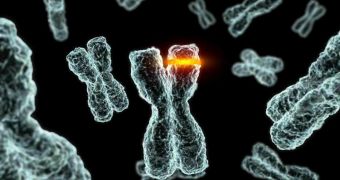The presence of certain hormone receptor genes in a person's genetic material may determine whether they are nice or mean, the conclusions of a new study show. The research basically sets the foundations for developing a genetic test meant to gage a person's niceness.
Scientists have always wondered why twins – who are brought up by the same parents in similar environments – often turn out to have very different personalities, in many cases the exact opposite of each other.
If the new research is proven correct, then this could happen because the mean-spirited of the twins got the wrong hormone receptor genes, whereas their nice brother or sister got the socially-accepted version for the same gene, LiveScience reports.
Experts at the University of Buffalo, in the United States, focused their research on the receptors that enable the hormones oxytocin and vasopressin to bind to neurons. Both these chemicals play an important role in underlying feelings such as love and generosity in the human brain.
It's also important to note here that there are several versions of each receptor neurons use for different hormones. UB psychologist Michel Poulin suggests that certain receptor variations make individuals more likely to be nice, whereas others make them appear meaner.
But the influences that these genes have can be overcome through education, a good upbringing and positive life experiences. Even if someone has the “bad versions” of oxytocin and vasopressin receptors, they can still be nice if they want to.
Details of the new study were published in the latest issue of the journal Psychological Science.
“The fact that the genes predicted behavior only in combination with people's experiences and feelings about the world isn't surprising, because most connections between DNA and social behavior are complex,” Poulin explains.
The desirable versions of the hormone receptors basically “allow you to overcome feelings of the world being threatening and help other people in spite of those fears,” the investigator goes on to say.
Since the other versions create a negative worldview, those who display them are more likely to exhibit anti-social behaviors, in various forms.

 14 DAY TRIAL //
14 DAY TRIAL //